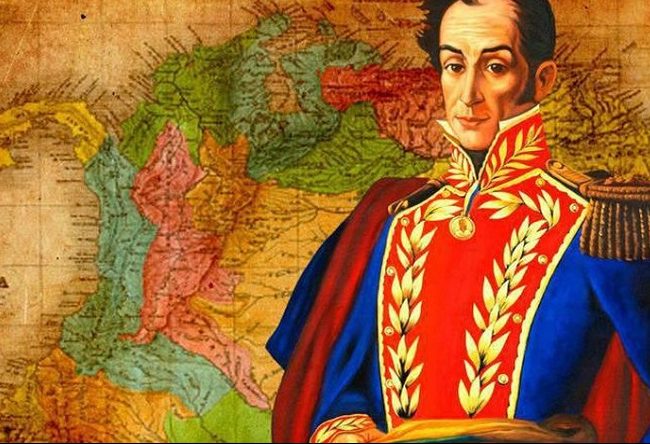Caracas, July 24, 2024.- The Bolivarian people of Venezuela and the world celebrate 241 years since the birth of the Homeland’s Father, the America’s Liberator and genius of all times, Simón Bolívar, whose anti-imperialist legacy from his revolutionary independence struggle remains relevant today in the pursuit of his unfinished dream: a Great Homeland that is free, sovereign, and united.
“Bolívar is the childbirth that never ends…” expressed Commander Hugo Chávez Frías on July 24, 2012, in his last speech on the occasion of the 229th anniversary of the Father Liberator’s birth.
“I believe that Bolívar is born every day within us, in his people, in these boys, in these girls, in the cornfields, in the sprouting of plants, in the struggle for life, in the struggle for social justice. There Bolívar is born and reborn. That’s why I said, paraphrasing Miguel Ángel Asturias, ‘The struggle that never ends,’ the childbirth, the birth that never ends. The Homeland, the Homeland!” Chávez added on that July 24, 2012, when he presented the face of the immortal hero after a scientific reconstruction following the unprecedented public revelation of his eternal bones in 2010.
“Now that we have presented his face, (…) Long live Bolívar! The real Bolívar and we are jubilant in Venezuela, and in all the countries of Latin America, the Caribbean, and beyond. Because truly Bolívar was, is, and will be one of the greatest giants of humanity. A true giant of the human cause, of the human struggle! The best of the human beings,” he added during the historic ceremony.
President Nicolás Maduro Moros confirmed these words when he recalled that Simón Bolívar rides firmly through every corner of the Homeland to transform his struggle into a moral force for the present and future.
“The Father Liberator is the greatest reference of our truth and of the dreams to fulfill,” wrote the Head of State in 2021 on the occasion of the 238th anniversary of Bolívar’s birth.
Simón Bolívar
Simón José Antonio de la Santísima Trinidad Bolívar Palacios y Blanco was born in Caracas on July 24, 1783.
His parents, Doña María de la Concepción Palacios y Blanco and Colonel Juan Vicente Bolívar, formed a wealthy family from the high aristocracy of colonial Caracas.
He had great teachers such as Andrés Bello and Simón Rodríguez, who instilled in him a love for the anti-imperialist struggle.
In his early years, he was cared for by Matea Bolívar, known as “La Negra Matea,” whom he considered a mother.
Young Simón became an orphan at an early age, losing both his mother and father. At the age of 18, he married María Teresa del Toro Alayza, who was 20 years old (on May 26, 1802).
In July of that same year, the young couple moved to Caracas, where his wife contracted yellow fever and died on July 22, 1803.
In his grief, Bolívar swore never get married again. This personal tragedy and the history of his own family led him to reflect on life, and his mentor, Simón Rodríguez, directed him toward the mission to which he would dedicate his life and personal wealth: to liberate Venezuela and America from Spanish rule.
In 1813, he was granted the title of Liberator by the Cabildo of Mérida in Venezuela, which was ratified in Caracas later that same year after his reconquest of the Andes and central areas of the country through the Admirable Campaign.
For twenty years, he led the struggle in hundreds of battles against the royalist monarchical army of Spain to achieve independence for Bolivia, Colombia, Panama, Ecuador, Peru, and Venezuela.
Bolívar was the founder of Colombia, a union of nations formed by the newly liberated republics from Spanish imperial rule, which existed between 1819 and 1831. The name Gran Colombia was attributed by 20th-century historians to the vast territory of this united republic to distinguish it from present-day Colombia, which only adopted this name in 1863 when it was referred to as the United States of Colombia.
On June 16, 1822, El Libertador met Manuela Sáenz, a prominent figure in the independence history of Ecuador and La Patria Grande, who would become the great love of his life and his most loyal defender.
Bolívar survived numerous assassination attempts, particularly in Colombia, where Manuela prevented the traitor Santander from successfully carrying out an assassination attempt in September 1828.
The Liberator managed to come out of the hundreds of battles he commanded without any wounds that threatened his life.
But on December 17, 1830, Bolívar passed away in Santa Marta, Colombia, presumably from tuberculosis, at the young age of 47. However, the real causes of his death are still being studied, in the face of historical questions that remain unresolved.
His republican, anti-imperialist, strategic, and humanitarian ideas, as well as his civil and military works during his lifetime, reveal an extraordinary thought that is still relevant in today’s world.
He is considered for his actions and ideas as “The Genius of America,” and he is a significant figure in Universal History; countries in Latin America and around the world honor his memory.
Two countries have been named in his honor: the Plurinational State of Bolivia and Venezuela, whose official name, Bolivarian Republic, reaffirms the revolutionary and anti-imperialist legacy he left in his homeland.
